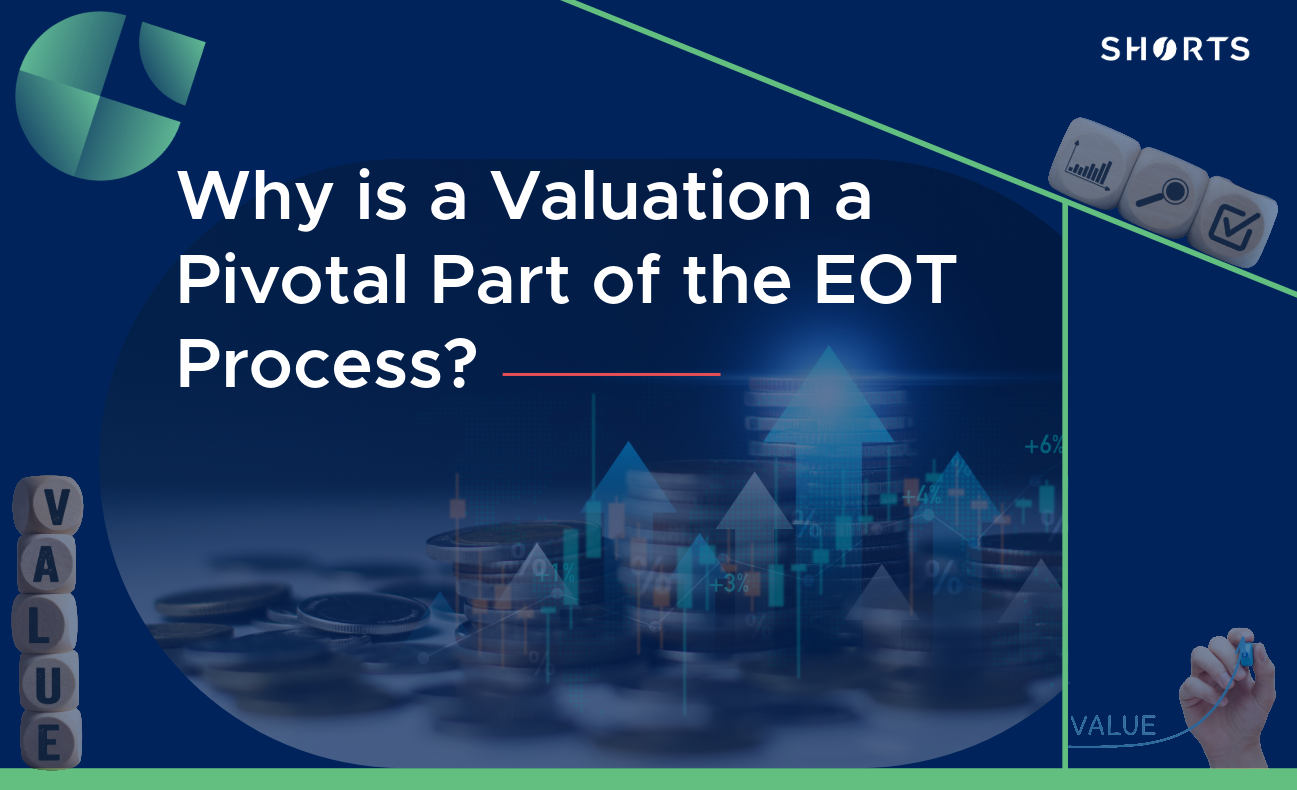
A professional valuation is central to structuring an employee ownership trust and is often the starting point for an EOT project. It plays a key role in determining the purchase price paid by the EOT to shareholders and ensures the financial interests of all parties are strategically aligned.
An EOT valuation is required to determine the market value of the shares being acquired. This is important to all parties for the following reasons:
-
EOT perspective: The trustees must undertake adequate procedures to confirm that the amount being paid for the shares is not excessive. A professional valuation is a key element for this process.
-
Selling shareholder perspective: The selling shareholders typically want to maximise the amount they receive for their shares, although they may be happy to sell at an undervalue in certain circumstances. It is also important that the price paid is not excessive, as this may impact their capital gains tax position.
-
Employees: To benefit fully, they will want the EOT to pay a fair price for the business. They do not want the company to be too highly geared because the initial purchase price was too high.
-
EOT finance providers: Lenders will want to be comfortable that the amount being paid by the EOT is reasonable and does not adversely impact the business going forward.
Why is an independent professional valuation important?
An independent professional valuation ensures the sale price is fair and the consideration paid for the shares is sustainable for the business. Using an independent valuer also builds trust between outgoing owners and employees that the EOT is paying market value and is being undertaken for the right reasons.
An independent valuation is a great starting point in implementing a successful EOT.
Key considerations taken into account in an EOT valuation
The following are the key benefits to consider in undertaking an independent valuation:
-
Objectivity: Independent, professional input
-
Transparency: Clear methodology and assumptions
-
Realism: Reflects current and future business performance
-
Compliance: Meets HMRC and legal standards
Common valuation methods
The methodology used in an EOT valuation is the same as for any share valuation. The goal in all cases is to arrive at a robust market value for the shares.
The valuer will consider all the relevant methodologies used to value shares in a private company and select the most appropriate one. These will typically include:
-
Asset-based valuation
-
Earnings-based valuation based on a profit multiple.
-
Discounted cash flow (DCF)
-
Industry standard metrics where applicable, e.g., a multiple of recurring revenue
The valuation should consider the level of surplus cash or debt in the company and reflect this correctly in the figures. If two businesses operate in a similar industry and have similar trading prospects, then the company with surplus cash reserves will be valued higher than one that operates with net debt.
What role do advisors play in EOT valuations?
EOT valuations are a critical first step in determining the market value of the shares being acquired. Having experienced, knowledgeable advisors is paramount to ensuring this valuation is robust and reliable. Following the valuation, advisors can help advise you on the best path forward to achieve your goals and desired outcomes.
Valuation experts have a keen awareness of both the financial and legal considerations associated with EOT valuations. They will ensure that the valuation is both reasonable and compliant.
The importance of financial records
When considering an EOT valuation, advisors will require access to your financial records and, in some instances, your forecasts. Maintaining robust and reliable management accounts and financial information ensures that your advisors have a clear understanding of the business’s financial performance.
Furthermore, producing financial information that is comparable with the statutory accounts means that current performance can be compared to historical data.
Get an independent EOT valuation
Shorts’ Corporate Finance team provides expert independent valuations for businesses considering an EOT. We are regularly recommended by other advisers to assist with EOT valuations and have successfully worked on many transactions over the last few years.
We would be delighted to speak with any advisors or business owners considering an EOT and will require an independent valuation as part of the project. Please get in touch with us if you have any questions.

Adam Ames
During my career, I have gained an experience and an appreciation of the many issues and opportunities faced by businesses during all market conditions and economic cycles, which I use to provide invaluable advice to clients across all areas of corporate finance including EOTs, MBOs, acquisitions, disposals and finance raising assignments.
View my articlesTags: EOT, Independent Valuation
